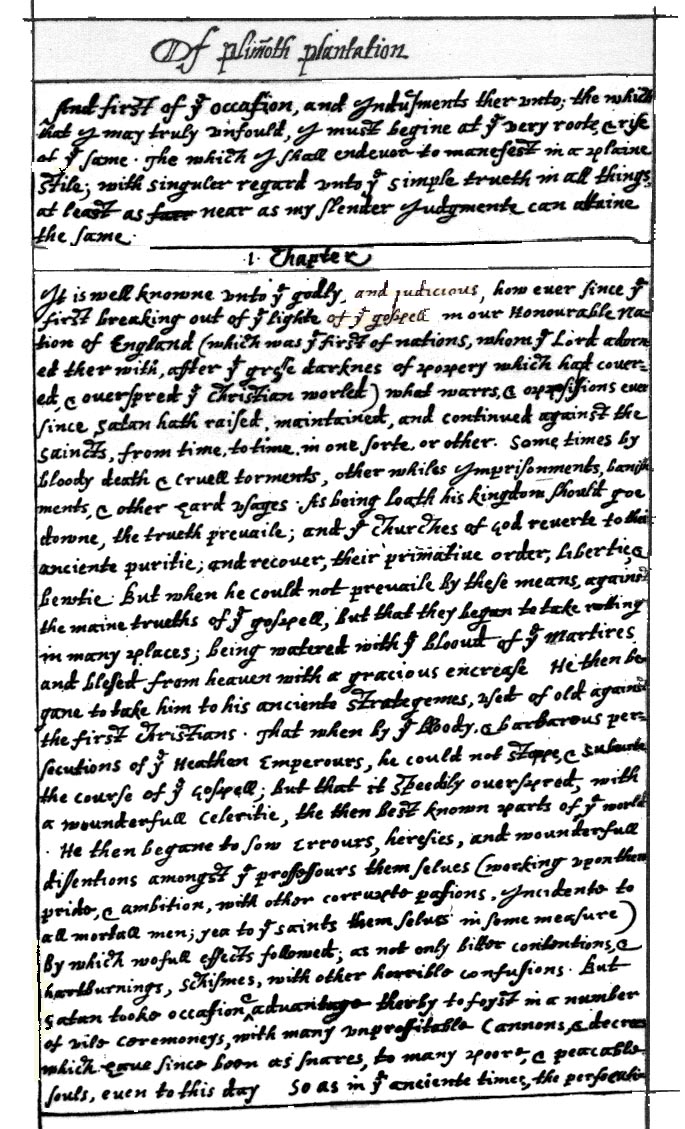"Hard and difficult beginnings"
 Tomorrow I hope to post a brief summary about Pilgrims, a brand new book debuting this month in the UK, and in the US in January, which tells the account of those who emigrated from England to the New World during the 17th century, but then, for various reasons, returned to their home country.
Tomorrow I hope to post a brief summary about Pilgrims, a brand new book debuting this month in the UK, and in the US in January, which tells the account of those who emigrated from England to the New World during the 17th century, but then, for various reasons, returned to their home country.In preparation for tomorrow's Thanksgiving holiday in the States, I thought I would share the following excerpt from William Bradford's account of the establishment Of Plymouth Plantation. It begins following the drawing up and signing of the original Plymouth covenant, upon the pilgrims' landing near Cape Cod:
After this they chose, or rather confirmed, Mr. John Carver (a man godly and well approved amongst them) their governor for that year.
And after they had provided a place for their goods, or common store (which were long in unloading for want of boats, foulness of the winter weather and sickness of divers), and begun some small cottages for their habitations; as time would admit, they met and consulted of laws and orders, both for their civil and military government as the necessity of their condition did require, still adding thereunto as urgent occasion in several times, and as cases did require.
In these hard and difficult beginnings they found some discontents and murmurings arise amongst some, and mutinous speeches and carriages in others; but they were soon quelled and overcome by the wisdom, patience, and just equal carriage of things, by the governor and better part, which clave faithfully together in the main.
But that which was most sad and lamentable was, that in two or three months' time half of their company died, especially in January and February, being the depth of winter, and wanting houses and other comforts; being infected with the scurvy and other diseases which this long voyage and their inaccommodate condition had brought upon them.
So as there died sometimes two or three of a day in the foresaid time, that of one hundred and odd persons, scarce fifty remained.
And of these, in the time of most distress, there was but six or seven sound persons who to their great commendations, be it spoken, spared no pains night or day, but with abundance of toil and hazard of their own health, fetched them wood, made them fires, dressed them meat, made their beds, washed their loathsome clothes, clothed and unclothed them.
In a word, did all the homely and necessary offices for them which dainty and queasy stomachs cannot endure to hear named; and all this willingly and cheerfully, without any grudging in the least, showing herein their true love unto their friends and brethren; a rare example and worthy to be remembered.
Two of these seven were Mr. William Brewster, their reverend elder, and Myles Standish, their captain and military commander, unto whom myself and many others were much beholden in our low and sick condition.
And yet the Lord so upheld these persons as in this general calamity they were not at all infected either with sickness or lameness.
And what I have said of these I may say of many others who died in this general visitation, and others yet living; that whilst they had health, yea, or any strength continuing, they were not wanting to any that had need of them.
And I doubt not but their recompense is with the Lord.
Find this and other interesting primary-source excerpts related to New England puritanism in The American Puritans: Their Prose and Poetry, edited by Perry Miller.













No comments:
Post a Comment